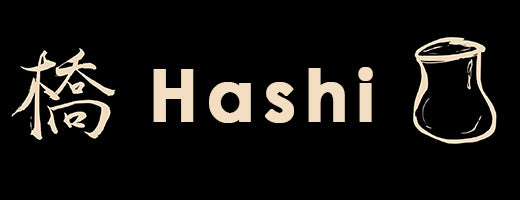Meet Akemi Rice

Originally from Ichinoseki in Iwate Prefecture, Japan, Akemi Rice has lived in the United States since 1996. During that time, she has honed her skills as a basket weaver and expanded her craft to include handmade soaps, greeting cards, and other pressed flower art made from flowers she cultivates on her farm in Hadley. Recently, she has turned to ikkanbari—the traditional Japanese technique of covering objects with washi paper and fabric.
Akemi’s creative journey, however, began long before her arrival in the United States, deeply rooted in childhood experiences with her grandparents, whose craftsmanship profoundly shaped her artistic sensibilities. Growing up in a rice-farming family, Akemi fondly recalls how her grandfather would involve her in seasonal crafts. Every New Year, they crafted kadomatsu (traditional pine decorations) and shimenawa (sacred ropes) using straw from the family’s rice harvest and bamboo cut from their backyard. Her grandfather also made straw sandals and bamboo toys, teaching Akemi the value of resourcefulness and sparking her fascination with natural materials. Her grandmother was equally skilled, creating hand-sewn yukata (summer kimono), knitting, and even weaving baskets from recycled newspapers. These experiences cultivated Akemi’s appreciation for everyday objects that were beautiful, functional, and made with care.
In her current work, Akemi draws on those early lessons in craftsmanship and sustainability. Whether weaving a basket or designing an ikkanbari piece, she finds joy in repurposing familiar materials, such as fabric scraps from cherished garments, old notebooks, or vibrant handmade paper. Each creation becomes a personal meditation, allowing her to immerse herself fully in the process while preserving traditions that have personal and cultural significance.
Akemi also values her craft as a means of connection—to her heritage and the people she meets through her work. “I love meeting new people through teaching,” she says, “and I want those who use my baskets or cards to feel the care that went into making them.” She hopes her creations will bring joy, meaning, and a sense of connection to those who receive them, much like the warmth she felt crafting alongside her grandparents as a child.
In workshops, Akemi encourages participants to take pride in their creations, fostering a sense of community and shared joy. For her, the creative process is as much about the relationships it nurtures as it is about the finished product. This philosophy is reflected in the meaning of her work itself—each basket, pressed flower card, or soap invites its recipient to pause, connect, and appreciate the artistry and care woven into daily life.
岩手県一関市出身のアケミ・ライスさんは、1996年からアメリカに住んでいます。その間、バスケット編みの技術を磨き、手作り石鹸、グリーティングカード、自ら育てた花を使った押し花アートなど、クラフトの幅を広げてきました。最近では、和紙や布を使って物を覆う日本の伝統技法である一閑張りにも取り組んでいます。
しかし、アケミさんの創作の旅はアメリカに来る以前から始まっており、祖父母と過ごした幼少期の経験に深く根ざしています。稲作を営む家庭で育ったアケミさんは、祖父と共に季節のクラフトを楽しんだ思い出を懐かしく語ります。毎年正月には、家の裏庭で切った竹や家族の稲作で収穫した藁を使い、門松やしめ縄を一緒に作りました。また、祖父はわら草履や竹のおもちゃを作り、アケミさんに物を大切に使う工夫を教え、自然素材への関心を育んでくれました。一方、祖母は浴衣を手縫いし、編み物をし、さらには古新聞を使ってバスケットを編むなど、多彩な手仕事を行っていました。こうした祖父母との経験を通じて、アケミさんは、美しく機能的で心のこもった日用品への感謝を深めていったのです。
現在の作品づくりにおいても、アケミさんは幼少期に学んだクラフト精神と持続可能性を大切にしています。バスケットを編むときも、一閑張りの作品をデザインするときも、大切な衣服の切れ端や古いノート、鮮やかな手作り和紙など、身近な素材を再利用することで、特別な作品に仕上げています。制作の過程そのものがアケミさんにとって一種の瞑想であり、没頭することで、個人的かつ文化的な意味を持つ伝統を守っています。
また、アケミさんは、自身のクラフトを、ルーツや作品を通じて出会う人々とのつながりを育む手段とも考えています。「教えることで新しい人との出会いが生まれるのが大好きです」と話し、「自分の心を込めて作ったバスケットやカードを使ってもらえることに感謝しています。それが贈り物として誰かを喜ばせることができたらとても嬉しいです」と語ります。彼女は、自身の作品が受け取った人々に喜びや意味、そしてつながりをもたらし、祖父母と共にクラフトを楽しんだ幼少期の温かさを感じてもらえたらと願っています。
ワークショップでは、参加者が自分の作品に誇りを持てるよう促し、共に喜びを分かち合いながら、楽しい時間を過ごすことを心掛けています。アケミさんにとって、創作の過程は完成品を作ること以上に、人と人とのつながりを育むものです。この哲学は彼女の作品にも反映されており、一つ一つのバスケット、押し花カード、石鹸が、日常生活の中でその芸術性と心のこもった温かさを感じてもらえることを願っています。
